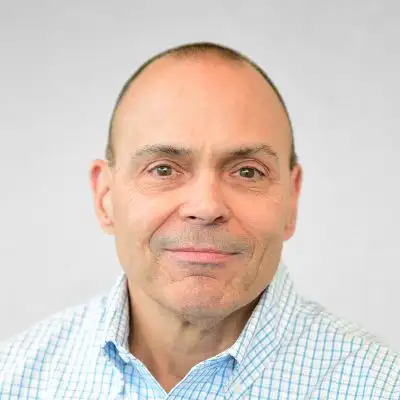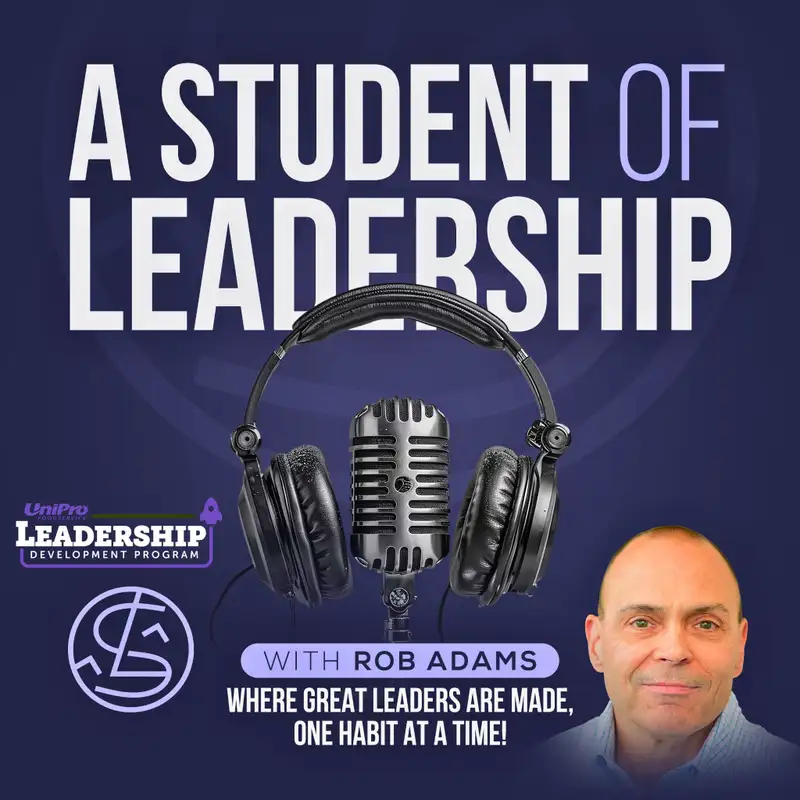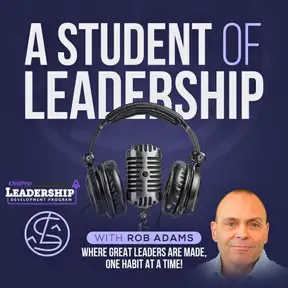Episode 18 - Leadership Listening
Download MP3Welcome to a student of leadership, a micro podcast where leaders are made one habit at a time. Hosted by Rob Adams, a leadership veteran with thirty years of experience. This podcast explores key concepts that define exceptional leadership. Each episode delves into a powerful word or strategy, offering practical insights and real world stories. Whether you're just starting out or an experienced executive, join Rob as he guides you in learning, growing, and leading with purpose.
Rob Adams:Hello, and welcome back to A Student of Leadership, where great leaders are made one habit at a time. I'm Rob Adams, your host, and today we're exploring a leadership skill that transforms relationships and drives breakthrough insights. We're talking about listening, active listening. True listening goes far beyond hearing words. It's about creating space for understanding, discovery and connection.
Rob Adams:When leaders master the art of deep listening, they unlock the hidden potential, surface innovative ideas and build the kind of trust that transforms organizations. Yet in our fast paced, solution focused world, genuine listening has become increasingly rare, making it even more powerful differentiator for exceptional leaders. In this micro episode, we'll explore the transformative power of strategic listening, share a compelling story about how listening revolutionized a company's culture, and provide practical techniques to elevate your listening from a basic skill to a strategic advantage. Consider the remarkable transformation at Microsoft under Satya Nadella's leadership. When he became CEO in 2014, Microsoft was known for its competitive hierarchical culture.
Rob Adams:Instead of immediately implementing changes, Nadella first launched a massive listening campaign. He instituted a thing called One Week, an annual event where employees could share ideas directly with leadership. He personally attended employee hackathons, and not just to observe, but to deeply understand the challenges and aspirations of his teams. Perhaps the most important thing he implemented was regular stay interviews instead of just exit interviews, creating ongoing dialogues about what kept people engaged and what might cause them to leave. One powerful example of this listening approach came when an employee group raised concerns about accessibility features in Microsoft products.
Rob Adams:Instead of delegating the issue, Nadella spent time listening to employees with disabilities, understanding their challenges firsthand. This led to Microsoft's revolutionary adaptive controller for Xbox and a company wide emphasis on inclusive design. Under Nadella's listening centered leadership, Microsoft's market value grew from 300,000,000,000 to over 2,000,000,000,000. But more importantly, employee satisfaction reached record highs and the company regained its position as the innovation leader. Stephen R.
Rob Adams:Covey's observation that most people do not listen with the intent to understand. They listen with the intent to reply. It reveals a crucial truth about leadership. The difference between basic listening and strategic listening lies not in the fact in itself, but in the intention behind it. When we listen to understand rather than respond, we create space for breakthrough insights and even deeper connections.
Rob Adams:Now let's get to our reflection questions. What prevents you from being fully present when others are speaking? How do you disguise or distinguish between hearing information and truly understanding its implications? And in what ways might your listening habits be limiting for your leadership effectiveness? A 2023 study by the International Listening Association revealed that leaders who excel at strategic listening see a 40% higher team innovation rate and a 65% better employee retention.
Rob Adams:Furthermore, teams led by skilled listeners report 50% fewer misunderstandings and complete projects 30% faster due to clearer communication and alignment. Now, we're going to get into three powerful strategies to transform your listening impact. Number one, create listening spaces. Design specific moments and environments dedicated to deep listening. This might include no solution meetings where the focus is purely on understanding or reverse mentoring sessions where junior team members share their perspectives.
Rob Adams:Number two, master the four levels of listening. Practice moving between factual listening, what's being said, emotional listening, how it's being said, intentional listening, why it's being said, and transformational listening, what's not being said but needs to be heard. And number three, develop listening rituals. Establish regular practices that demonstrate your commitment to listening, such as learning tours, where you spend time understanding different parts of your organization, or assumption testing sessions where team members can safely challenge the current thinking. Remember that strategic listening isn't passive.
Rob Adams:It's an active leadership tool that requires intention, practice, and consistent refinement. Now your action challenge for this week is to conduct a listening audit. You want to do it on your leadership style. For one day, track every conversation noting the following: Your listening level: factual, emotional, intentional, or transformational Any moments where you shifted from understanding to responding. And three, missed opportunities for deeper insight.
Rob Adams:Use these observations to create a personal listening improvement plan. You see, listening is more than a communication tool. It's a strategic leadership advantage that can transform relationships and innovation and drive organizational success. As you work on this week's action challenge, remember that every conversation is an opportunity to deepen understanding and strengthen connections. Now next week, we'll explore authenticity.
Rob Adams:How being genuinely yourself while leading others creates trust, inspires loyalty, and drives sustainable success. Until then, keep practicing the habits that make great leaders. And remember, great leaders are made one habit at a time. See you next time on A Student of Leadership. Take care, everyone.
Otro:Thanks for tuning into this of the student of leadership. Leadership is about who we become and how we help others grow. If you found value in this podcast, share it with a fellow leader and connect with Rob on LinkedIn or leave a review. New episodes drop weekly, so don't forget to subscribe to stay connected. Until next time, keep learning, growing, and leading with intention.
Otro:Remember, great leaders are made one habit at a time. See you next time on a student of leadership.
Creators and Guests


